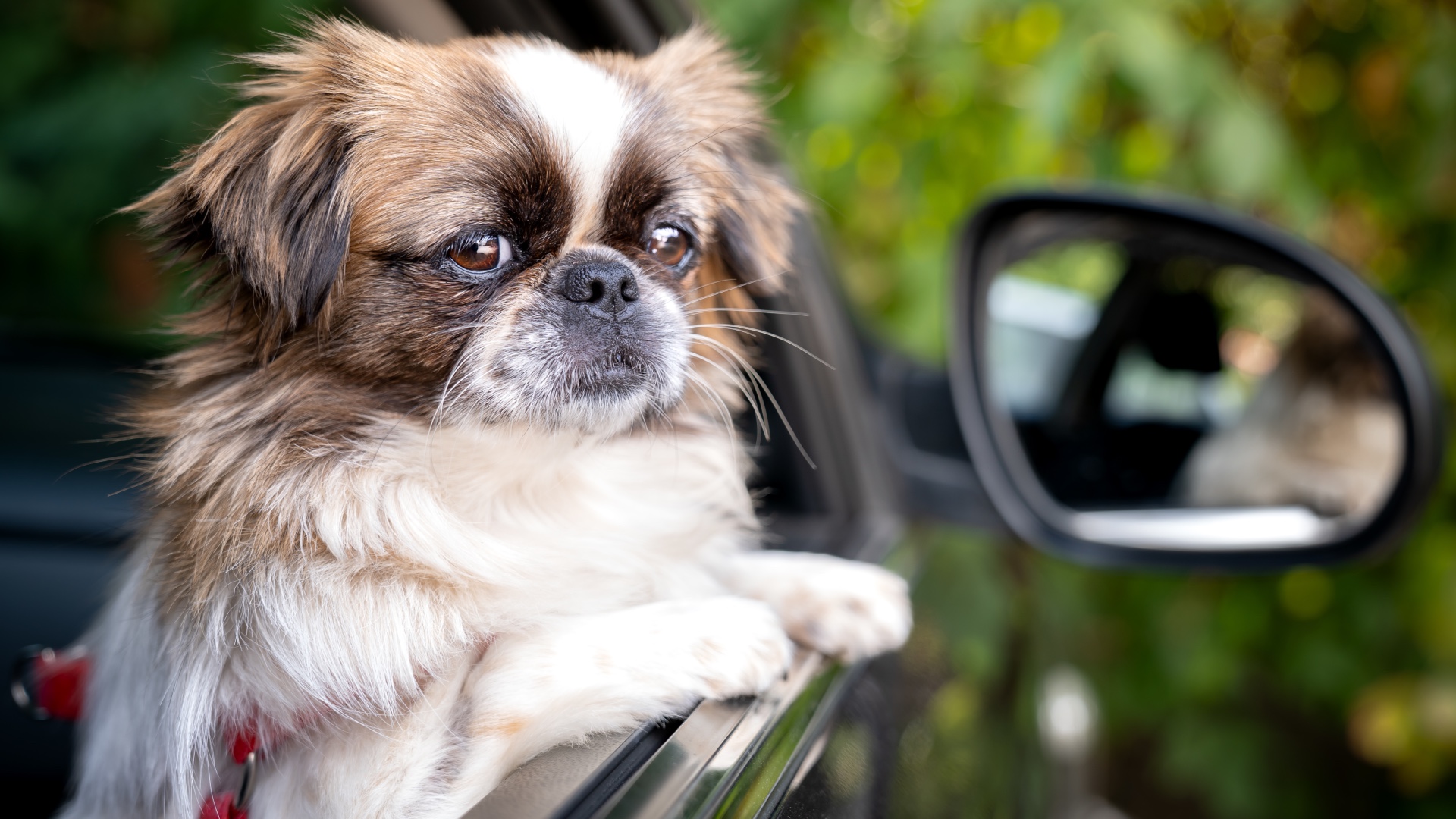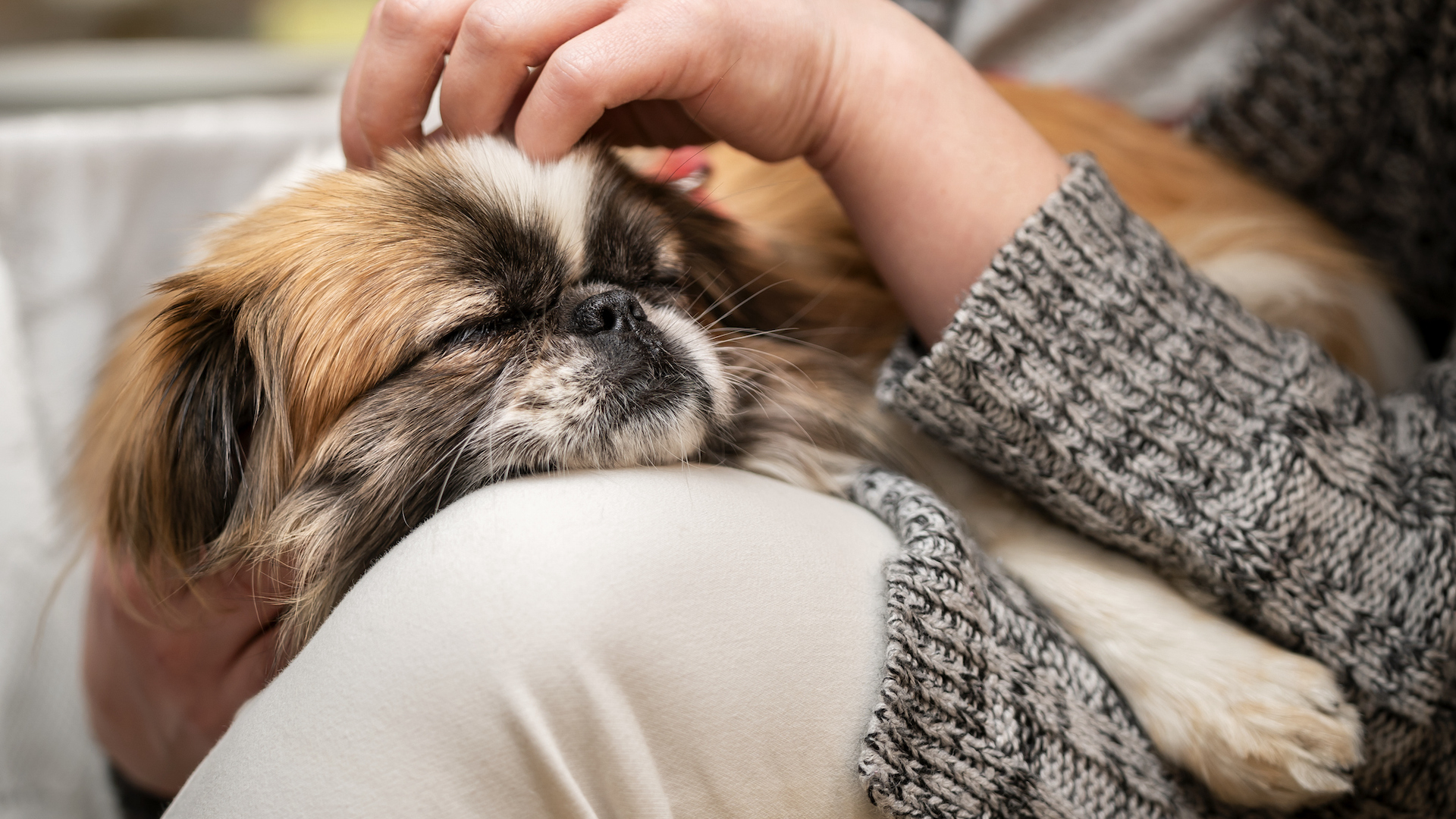Pekingese were once cherished companions of China’s imperial family but would you want one lording over your home?
Pekingese are cute, adaptable and just a touch stubborn, making for an intriguing little pet


Life expectancy: 12–15 years
Size: 6–9 inches (male); 6–9-inches (female)
Coat: Standard or flat coat
Temperament: Opinionated, affectionate, stubborn, friendly
Exercise needs: Around 30 minutes daily
Origin/native country: China
Having originated among royalty in Beijing, China, when the city was named Peking, the Pekingese breed dates back some 2,000 years. Considered sacred and lion-like in appearance, there may actually be some overlap with Persian cats but one thing’s for sure, this toy dog breed makes the perfect cuddle buddy.
So is this Asian breed a perfect pet for you? Well, there are some downsides to owning one of these sassy, regal-looking dogs and we will explain the pros and cons with the assistance of expert vet Dr Lisa Coder.
Do Pekingese dogs need a lot of exercise?
Pekingese are known for being a low-energy dog breed and they would much prefer to be by their owner’s side, doing their best to raise a smile than sprinting across fields chasing after balls. In that sense, they could be classed as a lazy dog breed or, if that sounds harsh, one of the sleepiest dog breeds, given they can get their head down for hours. But that is not to say they don’t need to be active to some degree.
“Pekinese require a moderate amount of exercise,” says Dr Coder. “But, due to their short snouts, exercise outdoors in extreme temperatures should be avoided.”
In general, owners of this breed need to aim for between 30–60 minutes of gentle walking and play each day. Allow Pekingese to dictate their own pace, keep them cool and split the sessions over the day to avoid them overdoing things.
Are Pekingese easy to train?
Pekingese have the lowest degree of working and obedience intelligence, according to canine psychologist Stanley Coren in his book The Intelligence of Dogs. So you’re going to need at least 80 repetitions to get them to understand a new command and they’ll only obey the first command, at best, at a quarter of the time.
It means this breed is one of the hardest dogs to train.
Get the best advice, tips and top tech for your beloved Pets
“Pekingese love interacting with people but can be opinionated about following cues as they tend to have a mind of their own,” Dr Coder says.
They certainly won’t respond to your sessions with enthusiasm and you’re going to have to be very patient. But use positive reinforcement and be consistent and you can get past the stubborn side to some extent.

Do Pekingese make good family pets?
Their charm, confidence and good nature make Pekingese a joy to be around, so long as you’re not being bossy with them – that can lead to frustration on your part. Take them at face value and you’ll simply enjoy their loyal, affectionate and outgoing personality. To that end, they’re going to be suitable for so many people.
“Pekingese make excellent family pets and they love to spend time with their owners,” Dr Coder says.
Given how easy they can be to be around, this breed is among the best dogs for seniors but they may also be good dogs for younger families.
“Pekingese are friendly, very outgoing and tolerate children, but prefer not to roughhouse with kids,” Dr Coder says.
And if noise is an issue, you may want to listen to this piece of advice:
“Pekingese may bark more than the average dog, but it is an individual trait for each dog,” Dr Coder says. They will, however, alert you to people approaching your home. To that end, they’re good watchdogs.
Do Pekingese tend to stay indoors?
Pekingese are sedate and, if you don’t take them outside, they’re not going to complain – they’d rather tread the floor of a palace than stroll around a garden.
“Pekingese are social and friendly dogs, and are happy to stay indoors if that is where their owners are,” says Dr Coder. You should, for the sake of their health, however, allow them to venture outdoors for some fresh air.
The main issue here is that they will want you to be with them as much as possible so if you tend to go out a lot, that may not work out too well.
“Because they form such strong bonds with people, Pekingese frequently suffer separation anxiety when away from their owners for long periods of time,” says Dr Coder.

Do Pekingese need a lot of grooming?
Given they are among the most low maintenance dog breeds, Pekingese don’t require an abundance of care but they do need to be groomed each week.
“Pekingese have a long, thick, double coat and require regular grooming and brushing at home,” says Dr Coder. “They also have folds around the face that may require frequent cleaning.”
This breed also sheds seasonally.
“They shed a moderate amount and have long hair that can make the shedding seem excessive,” Dr Coder says. Keep on top of the coat with the best dog brushes and you’ll avoid mats and tangles.
Wisdom Panel Breed Discovery DNA Kit | Amazon
Not sure exactly what breed your dog is? This kit screens for 365+ breeds – because knowing every detail about your dog helps you understand how best to care for them.
Pekingese health problems
Pekingese have a few health conditions owners should be aware of and the main one is that this is a brachycephalic dog breed – hallmarked by their flat face and shortened muzzle.
Some campaigners are very much against people owning breeds such as these so it’s something to consider.
“Brachycephalic airway syndrome affects many short-snouted dogs and can cause trouble breathing, excessive snoring, exercise intolerance, and heat intolerance,” Dr Coder says.
Pekingese can also suffer keratoconjunctivitis sicca – more commonly known as dry eye.
“It occurs when the dog does not produce enough tears to appropriately lubricate the eye and can lead to irritation and even ulceration of the surface of the eye.”
Patellar luxation is a concern too.
“The kneecap does not stay in the appropriate location,” Dr Coder explains. “This can lead to lameness of varying severity, and may require surgery.”
Should I get a Pekingese?
Pekingese are popular and well-loved lapdogs with an abundance of positive attributes. They are very well suited to people who lead relatively inactive lives and who spend much of their time around their home. They’re one of the best dog breeds if you’re short on space as well.
But while they’re sleepy, they can take up a lot of your time given how much they thrive with human company and how difficult they can be to train. They won’t be comfortable joining you on an adventure and you also have to take into account whether or not you agree with the breeding of brachycephalic dogs.
Pekingese Dog Owners Manual | Amazon
This manual contains all the information you need, including transitioning through house breaking, care, feeding, training and end of life, so that you can make a well-informed decision about whether or not the Pekingese is the breed for you.
Read next: Teddy bear dog breeds

Dr. Lisa Coder graduated from the University of Missouri in 2013. Since then, she has worked in many different types of clinics, from equine, to mixed animal, to ER. She even served a few years with the United States Department of Agriculture as a public health veterinarian. She loves all animals and strive to provide a safe, comfortable, and compassionate place for the people and pets who make up our community family. Dr. Lisa and her practice Vital Animal Veterinary Clinic serves the greater Sioux Falls, South Dakota area, with compassionate care for cats, dogs, small exotic mammals, and reptiles. She is currently pursuing board certification in both types of exotic medicine. She has an absolutely brilliant staff, who supports her love of learning, teaching, and endeavoring to continually improve.
Edited by Georgia Guerin.
This feature was last updated in July 2025.

David Crookes has been a journalist for almost 30 years and he has written for a host of magazines, newspapers, websites and books including the World of Animals Annual, BBC Earth, Live Science, The Independent and Tom’s Guide.
Born in England, he lives with two cats but he’s also keenly interested in the differences between the huge number of dog breeds – in fact, you can read many of his breed guides that he’s written in collaboration with vets here on PetsRadar.
With a lifelong passion for technology, too, he’s always on the lookout for useful devices that will allow people to keep their pets happier and healthier, and provide them more time to spend together.
David has a degree from Durham University, as well as postgraduate diploma in journalism from the University of Central Lancashire.


